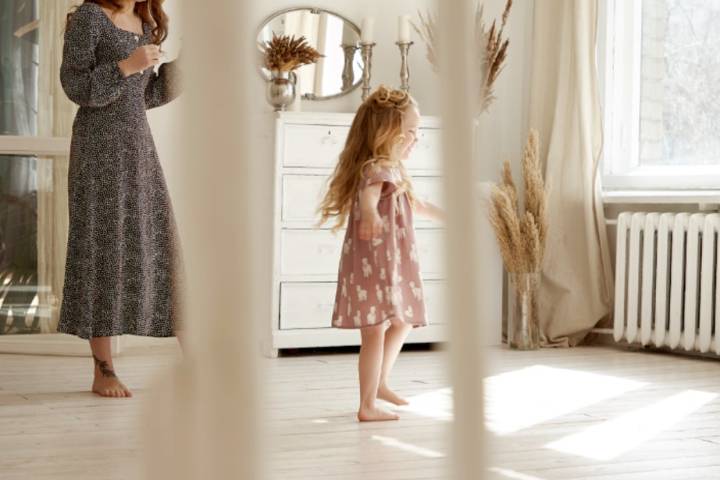Many families, unknowingly live with hidden threats that impact their health. These issues aren’t always obvious—they linger in the air, behind walls, or in the water. Mold spores, poor ventilation, and allergens can cause anything from respiratory problems to ongoing fatigue. Add to this outdated materials or unnoticed pests, and your home might be affecting your health more than you realize. Addressing these hidden factors is critical for ensuring your family’s well-being and turning your home into a safe space.
The good news? These issues can be identified and resolved with a bit of effort and awareness. From improving air quality to managing mold growth, tackling these health risks will make a significant difference. Let’s take a closer look at these hidden dangers and practical ways to handle them.

How Poor Air Quality Impacts Your Health
The air inside your home may not be as clean as you think. Everyday activities like cooking, cleaning, and even using air fresheners can release harmful pollutants. Dust, pet dander, and volatile organic compounds (VOCs) build up in poorly ventilated spaces, leading to sneezing, itchy eyes, and long-term respiratory issues.
Improving your indoor air quality is a worthwhile investment. One effective step is hiring professional home air quality services. Experts can recommend effective solutions according to your needs. This might include air purifiers, air filters, dehumidifiers and humidifiers. Taking action will create a healthier, more comfortable home for everyone.
Mold and Mildew Growth Lurking in Damp Corners
Mold and mildew are more than unpleasant to look at—they’re a health hazard. Damp basements, poorly ventilated bathrooms, and leaks behind walls are perfect breeding grounds for mold spores. Over time, these spores can spread throughout the home, often unnoticed. People with allergies or asthma are especially vulnerable, but even those without respiratory issues may experience headaches, coughing, or fatigue.
Eliminating mold starts with identifying the source of moisture. Fixing leaks, improving ventilation, and controlling humidity are essential steps. If mold has already spread, professional mold remediation may be necessary. Ignoring mold will only make it worse and harder to remove. By keeping moisture under control, you can stop mold from becoming a recurring problem and improve the overall air quality in your home.
The Risks of Outdated or Unsafe Building Materials
If your home was built decades ago, there’s a chance it contains hazardous materials. Substances like asbestos and lead paint were commonly used in older homes but are now known to pose serious health risks. Lead exposure, often from chipping paint, can cause developmental issues in children. Asbestos fibers, when disturbed, can lead to severe respiratory diseases like mesothelioma.
Identifying these risks early is critical. Hire qualified inspectors if you suspect your home contains outdated materials. Removing them safely requires professional help to avoid spreading harmful particles. If you’re renovating, ensure any materials you use are safe and modern. Taking these precautions will prevent unnecessary health complications for your family in the future.
Why Poor Water Quality Shouldn’t Be Ignored
Water is essential to your family’s health, but contaminants in your home’s water supply can cause more harm than good. Rust, chemicals, and bacteria can infiltrate drinking water, leading to digestive issues, skin irritation, and long-term health concerns.
To address this, start with water testing. Testing identifies any harmful contaminants, such as lead or chlorine, so you can choose the right solution. Installing filtration systems or water purifiers can make a significant difference. Clean water is vital not just for drinking but for cooking, bathing, and maintaining a healthy lifestyle. By improving your water quality, you can protect your family from avoidable health risks.
Household Cleaners and Their Hidden Dangers
Most households rely on cleaning products to keep their spaces fresh and germ-free. However, many of these products contain harsh chemicals that can harm your family’s health over time. Ingredients like ammonia, chlorine, and phthalates often release fumes that irritate the lungs and skin, particularly in small children or people with asthma. Some products even emit volatile organic compounds (VOCs) that can linger in your home for hours.
To avoid these risks, consider switching to non-toxic alternatives. Look for eco-friendly cleaning products with natural ingredients like vinegar, baking soda, and essential oils. Homemade solutions are also effective for tackling dirt without the added chemicals. Proper ventilation while cleaning is just as important—keep windows open or use exhaust fans to prevent fumes from building up. By making these changes, you can reduce chemical exposure and create a healthier home environment.
Why Rodents and Pests Are More Than Just a Nuisance
Rodents, cockroaches, and other pests are more than an inconvenience—they’re a health hazard. These unwanted guests can carry bacteria, viruses, and allergens that put your family at risk. For example, rodent droppings may trigger respiratory issues, while cockroach allergens can worsen asthma symptoms, especially in children.
The key to managing pests is prevention. Start by sealing any gaps in walls, windows, and doors that pests can use to enter. Keep food stored in airtight containers and ensure trash is disposed of regularly. If you notice an infestation, professional pest control services can help eliminate the problem safely and effectively. Addressing pest issues promptly will protect both your home and your family’s health.
Noise Pollution Can Disrupt Your Well-Being
While noise may seem harmless, constant exposure to loud sounds can have lasting effects on your family’s health. Whether it’s traffic outside, noisy neighbors, or loud appliances, prolonged noise pollution can increase stress levels, cause sleep disturbances, and even impact focus and productivity.
To minimize noise, start with simple solutions like adding rugs, curtains, or soundproofing materials to absorb sound. Investing in quieter home appliances can also reduce noise levels indoors. For external noise, consider installing double-glazed windows or soundproof panels. Creating a quieter home environment will help improve sleep quality and overall well-being.
Hidden health hazards in your home can impact your family more than you might realize. From mold and poor air quality to noise pollution and clutter, these factors can compromise both physical and mental well-being. By identifying and addressing these issues, families can create a safer, healthier living environment. Simple changes like improving ventilation, switching to non-toxic cleaners, and managing pests can make a significant difference. Your home should be a place of comfort and safety, and taking action now will protect your family’s health for years to come.
We hope you found this blog post on The Hidden Factors Impacting Your Family’s Health at Home, useful. Be sure to check out our post on Types of Mold And How They Affect Your Health for more great tips!
Have Experience in the Moving Industry? Want an Additional Income Stream? Work With All Around Moving!
Join our team today! We share profits 50-50 with you from all jobs you book with us. There are no recurring expenses, except purchasing your own leads. Click here to learn more.





